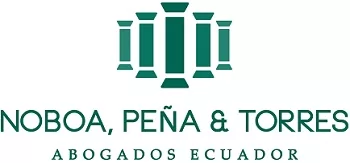Ecuador is following the tendency set by several countries worldwide of providing a greater use of the Electronic Signature, which grants authenticity to documents transmitted or filed in digital formats. On a daily basis, we can find more procedures where it is possible, and sometimes required, the use of this instrument.
The constant technological evolution that occurs year-by-year in almost any field has resulted in the prevailing necessity of recurring to a more agile mean to validate electronic documents, which nowadays, people and corporations use daily. For this purpose, the Electronic Signature has been set up as a tool that allows its holder to grant authenticity to the diverse electronic digital documents that are used. Ecuador has not stayed behind this tendency since it has the legal regulations necessary for its operational use, regardless the fact that the actual use of this e-signature is having a slow growth.
In Ecuador, the Electronic Signature has been regulated since the year 2002 by the Electronic Commerce, Electronic Signature and Data Messaging Law (in Spanish, Ley de Comercio Electrónico, Firmas Electrónicas y Mensajes de Datos). In short, this law defines the Electronic Signature as data in electronic formats that can be used to identify the owner or holder of the signature and indicate that such owner approves and recognizes the information provided in an specific document. This allows the owner of the Electronic Signature to validate and grant to a document the same legal effects as if it was a hand-written signature regardless the place it has been granted, giving such document the quality of evidence.
It should be noted that the use of this e-signature is subject, by provision of the law, to obtaining it before a certifying authority, which is in charge of providing the so called token (a device similar to a pen drive).
Currently, the use of the Electronic Signature in Ecuador is expanded to several fields of daily use, especially useful for businessmen and producers. According to SecurityData, one of the main entities that issue these electronic certificates, together with Ecuador´s Central Bank, the fields in which the signature is currently being used are: Secure Mail, Electronic Policy, signing of documents and contracts, Public Purchases procedures, Customs Window (ECUAPASS), Internal Revenue Service (SRI), Electronic Invoicing, online incorporation of companies and signing of documents, Suppliers of Petroamazonas, Signing of QUIPUX documents, Sanitary Registries of The National Agency for the Regulation, Control and Vigilance of Health (ARCSA) and the Ministry of Industries and Productivity (MIPRO), among others. This scope is evidenced in the new Administrative Code (in Spanish, Código Administrativo), recently published on July 7, which foresees that all activities from the public administration should be issued through digital electronic signature certificates, permitting the general public to relate with the diverse administrative entities through these types of certificates.
Regardless all the different areas in which the Electronic Signature is used or might be used in Ecuador, I consider that the evolution of the e-signature has been slow probably because of the lack of trust that derives from the use of digital formats, in contrast with the habit of using physical instruments under the belief that such physical instruments have more value as legal evidence or as supporting documents. But without any doubts it has been during the last 10 years were the use of the signature has increased, becoming, over time, a very important way to legalize documents, and in certain cases, essential for the various operators, either from the market or from public institutions. Gradually, all of them will accept the validity and legality of the electronic signature. It should be clear that, from a legal point of view, the electronic signature, as an instrument to provide evidential value in a process or as a simple mean to authenticate documents, has full validity in the cases in which the laws of the country recognize it. The important issue is to acknowledge all these scenarios in order to be able to argue and prove, when applicable, that the use of the electronic signature is provided by the law and, after fulfilling all the necessary requirements to implement the signature, such instruments have full legal value.
But Ecuador should not settle for (and probably will not) the current formats of the Electronic Signature in the country; it should go beyond that and, from the grounds currently laid down, implement an electronic identification card (electronic ID), which will allow all citizens to give full legal force to their documents.
The content of this article is intended to provide a general guide to the subject matter. Specialist advice should be sought about your specific circumstances.


